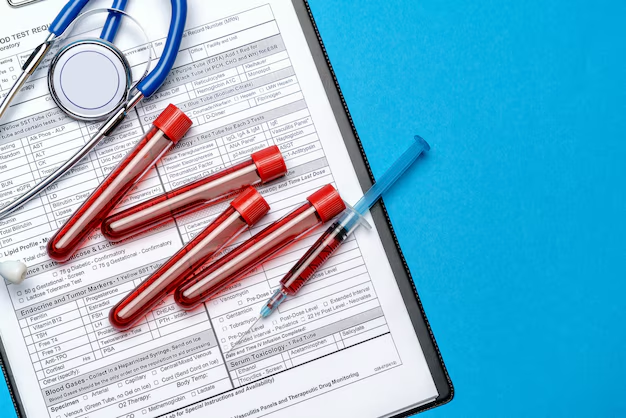Your Guide to Does Medicare Wellness Exam Include Blood Work
What You Get:
Free Guide
Free, helpful information about Medicare Insurance and related Does Medicare Wellness Exam Include Blood Work topics.
Helpful Information
Get clear and easy-to-understand details about Does Medicare Wellness Exam Include Blood Work topics and resources.
Personalized Offers
Answer a few optional questions to receive offers or information related to Medicare Insurance. The survey is optional and not required to access your free guide.
What You Should Know About Blood Work and Medicare Wellness Exams
Medicare wellness exams are crucial in maintaining your health and well-being, particularly for those over 65. However, a common question arises: Do Medicare wellness exams include blood work? Understanding the specifics of what’s covered can help you better prepare for your health care journey and explore additional resources that may be beneficial.
Understanding Medicare Wellness Exams
The Medicare wellness exam is an annual appointment that allows your doctor to create or update a personalized prevention plan based on your current health and risk factors. This is different from a standard physical exam. The aim is to keep you healthy by focusing on preventive care, which Medicare strongly emphasizes to potentially reduce more significant health issues down the line.
The exam typically involves:
- Assessment of medical and family history
- Development or update of a list of current providers and prescriptions
- Measurement of height, weight, and blood pressure
- Detection of cognitive impairments
- A screening schedule for appropriate preventive services, such as mammograms, colonoscopies, etc.
Is Blood Work Included?
Blood work is not generally included in a typical Medicare wellness exam. The wellness visit is designed more for preventive strategies and less for diagnostic testing. Blood tests, when deemed necessary, may be conducted separately, potentially subject to different coverage rules.
If your doctor finds something during the wellness exam that requires further investigation, they may order blood tests. These may include cholesterol levels, glucose tests, or anemia tests, depending on the findings and your health condition. Medicare Part B covers medically necessary diagnostic services but not as a part of your wellness exam.
Exploring Additional Health Coverage Options
Given the limited scope of the wellness exams, you might wonder how to cost-effectively manage essential tests. Here’s where financial assistance and other health-related resources play a critical role:
Supplemental Insurance: Consider Medigap plans or Medicare Advantage to cover additional services, including blood work recommended by your healthcare provider.
Health Savings Accounts (HSA): If you have a high-deductible health plan along with Medicare, contributions to an HSA can be used tax-free for qualifying medical expenses.
Community Health Programs: Some community clinics offer laboratory services at a reduced rate or free of charge for qualifying individuals.
Financial Assistance and Educational Opportunities
Navigating healthcare costs can be challenging, leading many to explore financial and educational support options. Here’s a quick overview of resources available:
📊 Supplemental Security Income (SSI): Provides additional income for those who qualify, easing medical expense burdens.
💸 Low-Income Subsidy (LIS) for Prescription Drugs: Offers help with drug plan costs, which can be critical if ongoing medications are part of your health program.
⚕️ PACE (Program of All-Inclusive Care for the Elderly): Aimed at helping older adults meet health needs while remaining within their community, covering a wide range of health-related services.
📚 Educational Grants for Healthcare Workers: If you are, or plan to be, involved in caregiving for loved ones, there are grants available for training that might reduce day-to-day healthcare costs through better home-care education.
While navigating Medicare and associated health services can feel overwhelming, understanding what’s part of provided wellness exams and what requires additional resources is crucial. This empowers you in making informed choices and exploring further assistance programs to maintain your health effectively.
What You Get:
Free Medicare Insurance Guide
Free, helpful information about Does Medicare Wellness Exam Include Blood Work and related resources.

Helpful Information
Get clear, easy-to-understand details about Does Medicare Wellness Exam Include Blood Work topics.

Optional Personalized Offers
Answer a few optional questions to see offers or information related to Medicare Insurance. Participation is not required to get your free guide.


Discover More
- Am I Elgible For Medicare
- Am I Enrolled In Medicare
- Am I Qualified For Medicare
- Are Adult Diapers Covered By Medicare
- Are Chemotherapy Drugs Covered By Medicare Part d
- Are Colonoscopies Covered By Medicare
- Are Covid Tests Covered By Medicare
- Are Cpap Machines Covered By Medicare
- Are Cpap Supplies Covered By Medicare
- Are Dental Implants Covered By Medicare
